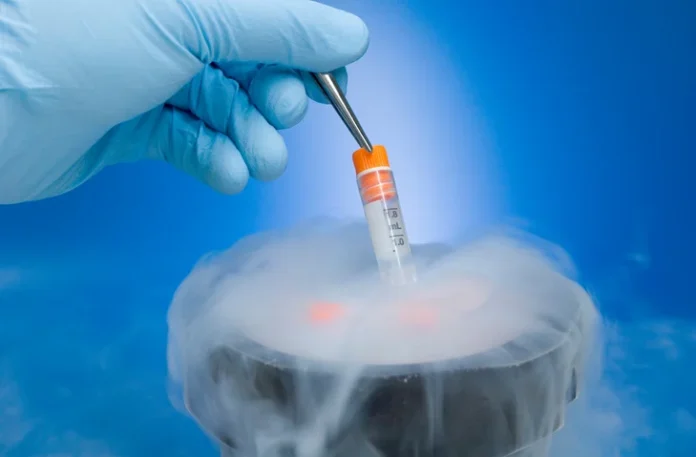New Jersey is moving forward with proposed new regulations aimed at improving oversight and safety in the operation of embryo storage facilities. These changes, introduced by the New Jersey Department of Health (NJDOH), aim to ensure that the state’s growing fertility industry is held to higher standards of accountability and care. As advancements in reproductive technology continue to evolve, these new rules seek to address long-standing concerns about the security, ethical considerations, and proper handling of stored embryos.
Addressing Concerns in the Fertility Industry

With the growing demand for fertility treatments, the need for embryo storage has never been greater. Whether couples are freezing embryos for future use or individuals are preserving fertility due to medical conditions, these facilities play an essential role in reproductive healthcare. However, as the number of individuals relying on these services increases, so does the need for more robust regulations to ensure that embryos are handled with the utmost care.
Recent events, including incidents of misplaced embryos or improper storage, have highlighted potential gaps in the current regulatory framework. These incidents have raised serious concerns about patient safety, privacy, and the ethical treatment of embryos, which have led to calls for stricter guidelines and oversight.
Key Provisions of the Proposed Regulations
The proposed new rules for embryo storage facilities in New Jersey focus on several key areas to address these concerns. Some of the most notable provisions include:
1. Enhanced Facility Standards:
Under the proposed rules, embryo storage facilities would be required to meet higher physical infrastructure standards. This includes ensuring that all storage tanks are equipped with alarms and backup systems to alert staff in the event of a malfunction. Such measures would prevent scenarios where technical failures could result in the loss or damage of stored embryos.
2. Regular Monitoring and Reporting:
To improve accountability, the regulations would mandate that all storage facilities undergo routine inspections by the NJDOH. Additionally, these facilities would be required to submit detailed reports on their storage practices, including inventory checks and the condition of embryos. This regular monitoring is designed to ensure that any potential issues are identified early and addressed before they escalate.
3. Transparency and Patient Rights:
The new regulations aim to enhance patient transparency by requiring that facilities provide clear and concise information about the embryo storage process. This includes detailed consent forms, as well as clear guidelines on ownership rights, storage fees, and disposal protocols. Ensuring that patients fully understand the process and their rights is a key aspect of the proposed regulations, addressing concerns over ethical dilemmas and improving informed decision-making.
4. Ethical Considerations and Consent:
In addition to technical standards, the proposed regulations also address ethical considerations. Embryo storage involves complex emotional and moral decisions, particularly when it comes to the use or disposal of unused embryos. The new regulations emphasize the need for clear informed consent at every stage of the process, as well as offering counseling services to patients to help them navigate the emotional complexities involved.
5. Security and Privacy Protections:
With the increasing digitalization of medical records, the proposed rules would require embryo storage facilities to implement stronger security measures for patient data. This would include encrypted systems for storing sensitive information, ensuring that patient identities and medical histories are protected from unauthorized access.
The Role of Public Input and Debate
The NJDOH has opened a public comment period for these proposed regulations, inviting feedback from healthcare professionals, patients, and the broader community. As with any regulation affecting medical practice, public input is crucial to shaping rules that are both practical and fair. The department is looking to balance the interests of patients who rely on these services with the concerns of those advocating for ethical standards in reproductive medicine.
Critics of the proposed regulations argue that they could increase operational costs for embryo storage facilities, leading to higher prices for patients. On the other hand, proponents believe that the long-term benefits, including greater patient trust and better oversight, outweigh these concerns. By setting clearer standards, the NJDOH hopes to enhance the reputation of New Jersey’s fertility industry as a safe and ethically responsible space for families to pursue their reproductive goals.
The Broader Implications for New Jersey’s Fertility Industry
As New Jersey continues to establish itself as a leader in reproductive healthcare, the proposed changes to embryo storage regulations are an important step toward ensuring that patients receive the highest standards of care. The state’s fertility industry has already seen significant growth, with numerous fertility clinics and egg freezing services making New Jersey a prime destination for individuals and couples seeking reproductive assistance.
By implementing these new rules, New Jersey would be taking a bold stance on patient safety and ethical practices in a rapidly advancing field. As the state’s population continues to diversify, it is essential that reproductive technologies are made accessible, transparent, and safe for all who rely on them.
Looking Ahead
As the public comment period for the proposed regulations progresses, all eyes will be on New Jersey to see how the NJDOH adapts and finalizes the rules. The state’s ability to establish clear and ethical guidelines will likely set a precedent for other states across the country facing similar challenges in the fertility sector.
For more updates on this evolving issue and other important healthcare and regulatory developments, make sure to check out our Humane State section, where we continue to explore important matters concerning public health, patient rights, and ethical standards in New Jersey.












